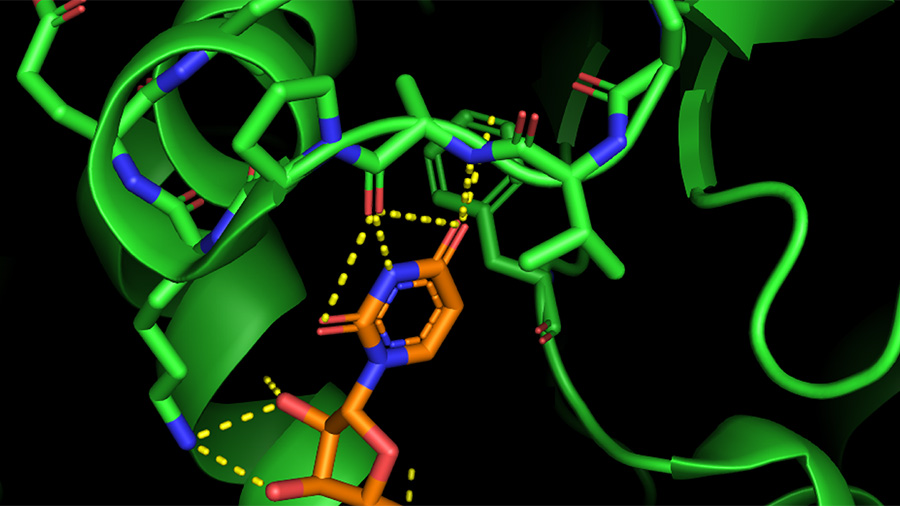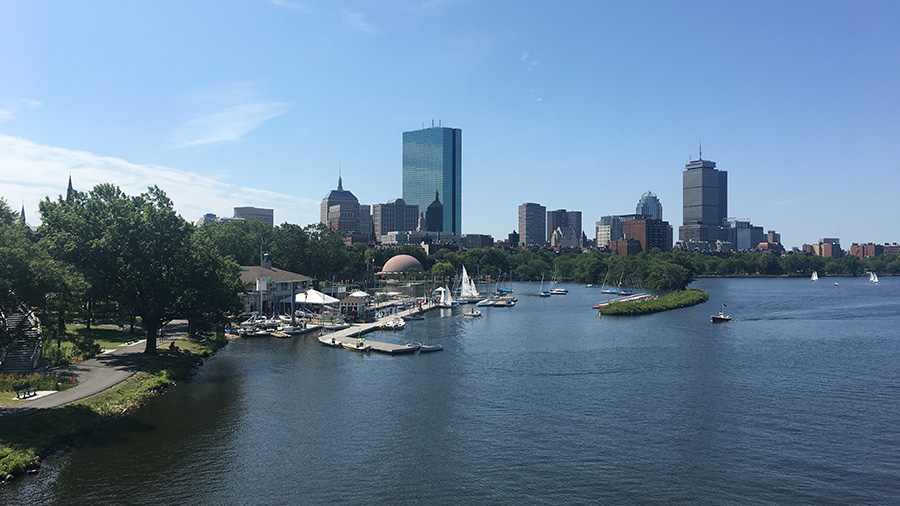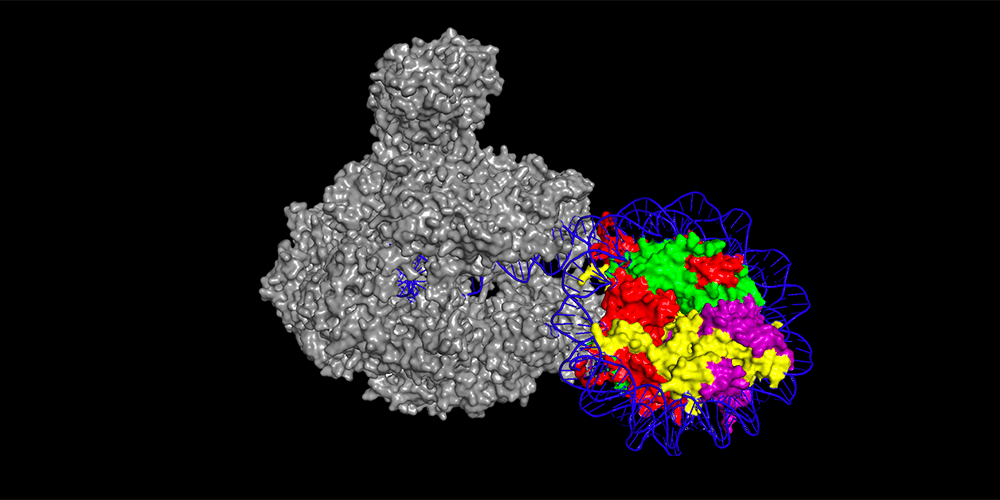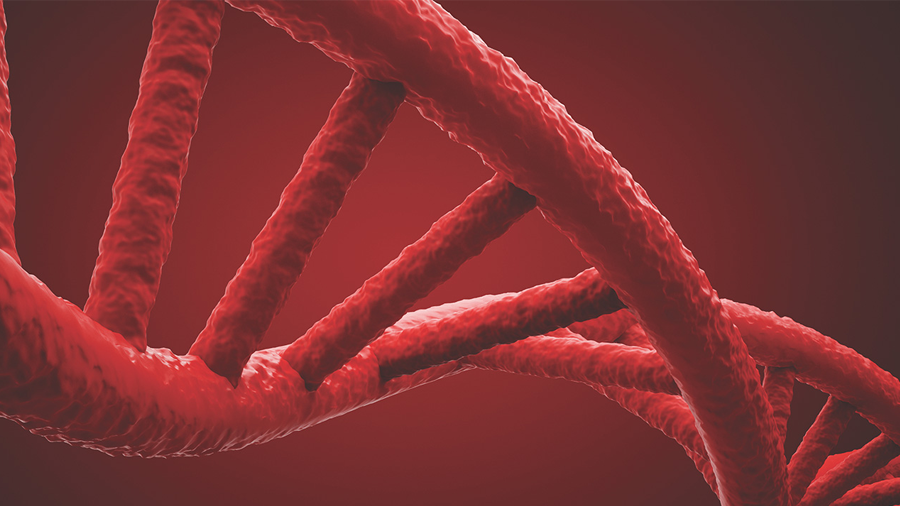Calendar of events, awards and opportunities
Every week, we update this list with new meetings, awards, scholarships and events to help you advance your career. If you’d like us to feature something that you’re offering to the bioscience community, email us with the subject line “For calendar.” ASBMB members’ offerings take priority, and we do not promote products/services. Learn how to advertise in ASBMB Today.
Feb. 23–24: Virtual forum on cohort recruitment by NIH
The National Institutes of Health is hosting a two-day virtual forum on the agency's faculty cohort recruitment programs and the science behind their effectiveness. Here's how they describe the event, which is open to all: "(We) will explore faculty cohort recruitment adoption and dissemination. Discussions will include the impact of cohort recruitment on diversity, equity, inclusion and accessibility; practices that make cohort recruitment successful; potential barriers to success; and how to evaluate both implementation and outcomes." Learn more.

Important #ASBMB2022 dates
The ASBMB annual meeting will be held in person in Philadelphia in April. Please note that the deadline below are new. They were changed to give you more flexibility, given the ever-changing pandemic situation. We're looking forward to seeing you!
- Feb. 28: Early registration (largest discount) ends
- March 1: Advance registration (smaller but still significant discount) begins
- March 15: Registration cancellation deadline (flat fee of $50)
Feb. 28: NAM Catalyst Award Competition deadline
The National Academy of Medicine's Catalyst Awards "reward bold, new, potentially transformative ideas to improve the physical, mental, or social well-being and health of people as they age, in a measurable and equitable way." We won't get into all the details, but you can read them here. Twenty-five winners will get $50,000 cash and travel costs for the annual global Innovator Summit. The deadline to apply is Feb. 28. Learn more.
March 8–10: 10th International Singapore Lipid Symposium
iSLS 10 will be held in person and online in March. This year's themes are: precision health and medicine, nutritional science, healthy longevity, cariometabolic diseases, infection biology and the microbiome. Learn more about the keynote lectures, networking opportunities and workshops. Fees: $150 for students and postdocs and $250 for others. ASBMB member Markus Wenk at National University of Singapore is organizing the meeting.

March 15: Abstract deadline for ESCRT biology meeting
This in-person meeting will be held in Madison, Wisconsin. It'll be a unique, open, inclusive and interactive forum for the international and domestic research community working on ESCRT biology and be an effective learning environment for all participants, especially graduate students, postdocs and other researchers from diverse backgrounds. This meeting will bring together experts in disciplines as diverse as biophysics, plant biology, cell biology, biochemistry and structural biology from around the world to cover key aspects of ESCRT biology. Stubmit an abstract.
March 14: Deadline to apply for health disparities program
The National Institute on Minority Health and Health Disparities is accepting applications from early-career minority health and health disparities research scientists for its Health Disparities Research Institute to be held August 15–19. The program includes lectures, mock grant review and small-group discussions. Learn more.
March 17: ASCB seminar on cellular dynamics
The American Society for Cell Biology's Emerging Researcher Talk Series will feature Maria Lastra Cagigas of the University of New South Wales and Mugdha Sathe of the University of Washington Seattle and the Howard Hughes Medical Institute on March 17. Learn more about their presentations.
March 30: Lasker essay contest deadline
The Lasker Foundation is accepting essays for its 2022 contest until 2 p.m. Eastern on March 30. The contest is open to medical school students, interns, residents and fellows; doctoral students and postdoctoral fellows in biomedical sciences; and graduate students in public health or other health professions programs. Winners will receive up to $5,000. Monetary prizes will be directed to the winners' institutions to be used toward the winners' educational expenses. Here's the topic: "Solving complex questions often calls for expertise in many fields. Describe how multidisciplinary collaborations and approaches (or future opportunities for them) have already or will in the future impact your own training, research, or career." The winners will be announced in early July. Learn more.
March 31: Apply to ACS Bridge Program
The American Chemical Society Bridge Program, in association with the Inclusive Graduate Education Network, assists students from underrepresented groups with getting into and succeeding in graduate school. Students who have not applied to graduate school or who have applied but were unsuccessful and would benefit from additional coursework and research experience are eligible to apply. Applications will be circulated to select chemical science departments that have committed to partnering with the ACS Bridge Program, at no cost to the students. Learn more.
March 31: Host symposium for grad students and postdocs
The Federation of European Biochemical Societies and its partners are looking for institutions to host the FEBS-IUBMB-ENABLE Symposium in 2024 for graduate students and postdocs. Institutions interested in hosting have until March 31 to apply. Note that these symposia are to be organized by the students/postdocs. Learn more.

April 22: Nominations due for 2023 ASBMB Annual Awards
The ASBMB Annual Awards are given to outstanding professionals who have been recognized by their peers for contributions to their fields, education and diversity. The recipients will give talks about their work at the 2023 ASBMB Annual Meeting in Seattle. See eligibility criteria here.

April 26: Abstract deadline for ASBMB's O-GlcNAc meeting
This conference, to be held in person in Athens, Ga., will address the multitude of roles that the O-GlcNAc protein modification has in regulating nuclear and cytosolic proteins. It will bring together researchers from diverse fields to share their research, tools and experience in O-GlcNAc biology. The organizers are Gerald Hart and Lance Wells, both of the University of Georgia. Learn more.
May 4: DOE grad student award application deadline
The U.S. Department of Energy's Office of Science Graduate Student Research program is accepting applications until May 4. The program supports U.S. graduate students seeking to conduct part of their thesis research at a DOE national lab or host site with a DOE scientist. The program is open to Ph.D. students who are conducting their thesis research in targeted areas of importance to the DOE Office of Science. Learn more.

May 16: Abstracts due for ASBMB mass spec meeting
This five-day conference will be held Aug. 14–18 in person in Cambridge, Massachusetts, and online. It will be an international forum for discussion of the remarkable advances in cell and human protein biology revealed by ever-more-innovative and powerful mass spectrometric technologies. The conference will juxtapose sessions about methodological advances with sessions about the roles those advances play in solving problems and seizing opportunities to understand the composition, dynamics and function of cellular machinery in numerous biological contexts. In addition to celebrating these successes, we also intend to articulate urgent, unmet needs and unsolved problems that will drive the field in the future. Registration and abstract submission begins Nov. 1. Abstracts are due May 16. Learn more.
June 1: Deadline to apply for ASBMB diversity scholarship
The Marion B. Sewer Distinguished Scholarship for Undergraduates offers financial support to students who demonstrate an interest in the fields of biochemistry and molecular biology and enhance the diversity of science. Students whose social, educational or economic background adds to the diversity of the biomedical workforce or who show commitment to enhancing academic success of underrepresented students are eligible. The scholarship provides up to $2,000 toward undergraduate tuition costs for one academic year and can be applied to fall or spring tuition of the year following scholarship award notification. Up to ten scholarships will be awarded each academic year. Applications by individuals from underrepresented groups are encouraged, although all qualified applicants will be considered without regard to race, gender, color, ethnicity or national origin. Apply.
June 16: Symposium on structural biology
The Oklahoma Cobre in Structural Biology at the University of Oklahoma is hosting its 10th annual structural biology symposium on June 16. Confirmed speakers include Hao Wu of Harvard University, Breann Brown of Vanderbilt University School of Medicine, Lorena Saelices of University of Texas Southwestern Medical Center, Satish Nair of the University of Illinois Urbana-Champaign and Erica Ollman Saphire of the La Jolla Institute for Immunology. Check here for details and to register.

July 14: Oral abstracts due for transcriptional regulation meeting
This in-person meeting will be held Sept. 29 through Oct. 2 in Snowbird, Utah. Sessions will cover recent advances and new technologies in RNA polymerase II regulation, including the contributions of non-coding RNAs, enhancers and promoters, chromatin structure and post-translational modifications, molecular condensates, and other factors that regulate gene expression. Patrick Cramer of the Max Planck Institute will present the keynote address on the structure and function of transcription regulatory complexes. The deadline for oral presentation abstracts is July 14. The deadline for poster presentation abstracts is Aug. 18. Learn more.

July 21–24: Evolution and core processes in gene expression
This in-person meeting in Kansas City, Mo., will showcase the most recent insights into the cis-regulatory code, how cis-regulatory information is read out by transcription factors, signaling pathways and other proteins, how cellular diversity is created during development and how we can study this problem using cutting-edge genomics technology and computational methods. The meeting will simultaneously examine the problem from an evolutionary perspective: how cis-regulatory elements evolve, how regulatory variation affects gene expression and phenotypes, how these changes have shaped development and parallel evolution, and how noise affects regulatory circuits and their evolution. The abstract deadline for those who'd like to be considered for talks is May 6. The abstract deadline for poster presenters and the registration deadline is May 25. Learn more.

Sept. 28–Oct. 2: Epigenetic regulation and genome stability
Save the date! Most meetings on epigenetics and chromatin focus on transcription, while most meetings on genome integrity include little attention to epigenetics and chromatin. This conference in Seattle will bridge this gap to link researchers who are interested in epigenetic regulations and chromatin with those who are interested in genome integrity. Stay tuned for abstract and registration deadlines.

Call for virtual scientific event proposals
The ASBMB provides members with a virtual platform to share scientific research and accomplishments and to discuss emerging topics and technologies with the BMB community.
The ASBMB will manage the technical aspects, market the event to tens of thousands of contacts and present the digital event live to a remote audience. Additional tools such as polling, Q&A, breakout rooms and post event Twitter chats may be used to facilitate maximum engagement.
Seminars are typically one to two hours long. A workshop or conference might be longer and even span several days.
Prospective organizers may submit proposals at any time. Decisions are usually made within four to six weeks.

Take over the JLR Twitter account
If you are a graduate student, postdoc or early-career investigator interested in hosting a #LipidTakeover, fill out this application. You can spend a day tweeting from the Journal of Lipid Research's account (@JLipidRes) about your favorite lipids and your work.
Enjoy reading ASBMB Today?
Become a member to receive the print edition four times a year and the digital edition monthly.
Learn moreFeatured jobs
from the ASBMB career center
Get the latest from ASBMB Today
Enter your email address, and we’ll send you a weekly email with recent articles, interviews and more.
Latest in Careers
Careers highlights or most popular articles

Embrace your neurodivergence and flourish in college
This guide offers practical advice on setting yourself up for success — learn how to leverage campus resources, work with professors and embrace your strengths.

Upcoming opportunities
Apply for the ASBMB Interactive Mentoring Activities for Grantsmanship Enhancement grant writing workshop by April 15.

Quieting the static: Building inclusive STEM classrooms
Christin Monroe, an assistant professor of chemistry at Landmark College, offers practical tips to help educators make their classrooms more accessible to neurodivergent scientists.

Unraveling oncogenesis: What makes cancer tick?
Learn about the ASBMB 2025 symposium on oncogenic hubs: chromatin regulatory and transcriptional complexes in cancer.

Exploring lipid metabolism: A journey through time and innovation
Recent lipid metabolism research has unveiled critical insights into lipid–protein interactions, offering potential therapeutic targets for metabolic and neurodegenerative diseases. Check out the latest in lipid science at the ASBMB annual meeting.

Hidden strengths of an autistic scientist
Navigating the world of scientific research as an autistic scientist comes with unique challenges —microaggressions, communication hurdles and the constant pressure to conform to social norms, postbaccalaureate student Taylor Stolberg writes.
